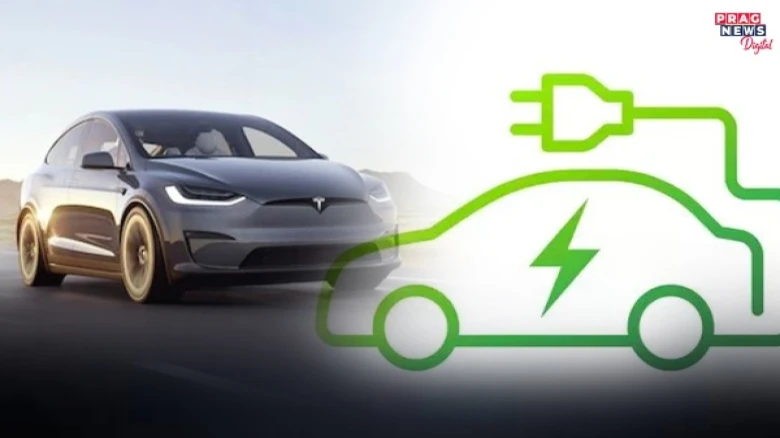North East

Tesla's entry into the Chinese market has aided in the acceleration of the local EV supply chain upgrade and increased industry competition.
Digital Desk: S&P Global Ratings stated in a research paper that Asian automakers are increasing their offerings and have some advantages over Tesla, similar to what has happened in the internal combustion engine (ICE) vehicle sector.
The market is developing quickly, and S&P Global Ratings anticipates that increased competition will change the competitive environment over the coming years.
"Chinese automakers are under stiff competition from Tesla. The company, which benefited from a strong brand reputation and functioning products, was listed as the third-largest EV seller in China during the past three years, reports S&P Global Ratings.
The entry of Tesla into the Chinese market has greatly assisted in the momentum of the local EV supply chain upgrade and increased industry competition.
Domestic Chinese producers such as NIO Inc. and Li Auto Inc. compete in the premium segment as well, using the asset-light model and outsourcing production to other automakers in the region.
According to the report, NIO and Li Auto have increased sales and gained a market foothold due to a good understanding of local consumer preferences.
Domestic Chinese producers dominate the low-end and mass market segments.
The best-selling EV model, for example, is the low-cost Wuling Hongguang mini EV. Guangzhou Automobile Group Co., Ltd. and Xpeng Inc. offer mid-level EVs with good technology offerings.
EV models are available in a variety of price ranges from manufacturers such as BYD.
In fact, BYD surpassed Tesla in the first half of 2022. Aside from battery electric vehicles, they also offer plug-in hybrid electric vehicles (PHEV), which alleviates consumer concerns about driving range.
BYD also has a more vertically integrated business model than competitors in the face of supply-chain disruption.
BYD also has a car plant in India.
Chinese EV manufacturers compete in all price segments in their home market. Because affordability is an important consideration for consumers, the low-cost mini EVs are well received in the local market.
"Currently, these models account for roughly 30% of total EV sales in the country. According to the S&P Global Ratings report, we believe that as new EV models become available and EV adoption rises, the proportion of mini EVs will decline.
Traditional vehicle manufacturers are better positioned at this stage than pure-play EV players due to their production capability, established supply chain, and distribution network.
Because of their engine expertise, they also have an advantage in plug-in hybrid EVs (PHEV). According to S&P Global Ratings, their internal combustion engine (ICE) car business also provides internal funding for the development of their EV business, which requires significant R&D and CAPEX.
Hyundai Motor Company and Kia Corporation of South Korea are also aggressively expanding their EV product lines. In the first half of 2022, the group was ranked as one of the top five players in the world in terms of sales volume.
In India, vehicle manufacturers are also venturing into EV production, with Tata Group already selling a car model. Maruti Suzuki is betting on hybrids, and commercial vehicle manufacturers are following suit.
Leave A Comment